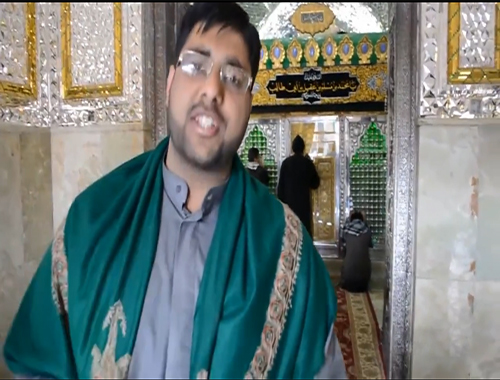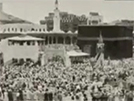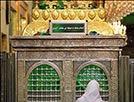Chapter 48-The Struggle for Power II
- Details
- Hits: 3919
The Struggle for Power II
--------------------------------------------------------------------------------
The Meeting of the Ansar in Saqifa
In A.D. 622, the Ansar invited Muhammad, the blessed Messenger of God, into Medina, and they acknowledged him as their spiritual and temporal leader. Other Muslims of Makkah, i.e., the Muhajireen, also migrated to Medina, and the Ansar welcomed them with open arms. They shared their homes and their bread with them. On numerous occasions, they deprived their own children of food which they gave to the hungry Muhajireen.
Muhammad made Medina the capital of Islam, and in due course, the city began to acquire the characteristics of a state. As time went on, the tiny city-state burgeoned into a well-organized government with its own sources of revenue, its own treasury, army, system of justice and administrative and diplomatic apparatus.
It was inevitable that it would occur to the Ansars (and other Muslims) that a day would come when Muhammad, the founder of the State of Medina, would bid farewell to them and would leave this world. This possibility confronted them with some new and rather uncomfortable questions such as:
1. What will the death of Muhammad Mustafa, mean to the young State of Medina and to the Muslim umma?
2. Who would succeed Muhammad as the new head of the State of Medina when he dies?
3. What will be the status of the Ansar after the death of Muhammad? Would the new head of the State be just as fair and impartial as he is?
4. Would the Ansar still be masters in their own home – Medina – after the death of Muhammad?
The Ansar had heard the speech of the Apostle of God at Ghadeer-Khumm appointing Ali as his successor, and they had given this arrangement their whole-hearted support. But they had also sensed the under-current of hostility of the Muhajireen toward Ali, and they were not sure if his succession would be peaceful or if it would take place at all. It was very much obvious to them that there was massive opposition, among the Muhajireen, to his succession, and that, among them he was a minority of one. Once the Ansar grasped this fact, they decided to act for themselves. It was for this reason that they assembled in Saqifa.
One may condone the action of the Ansar even if one may not commend it because the thought uppermost in their minds, following the death of their master, Muhammad, was self-preservation. Though they ought to have deferred their political rally until after the burial of the body of their master, at the moment it appeared to them that they had to act immediately or else it would be too late.
As noted before, the Ansar had given sanctuary to Islam at a time when its situation was most forlorn. For the sake of Islam, they had made all Arabs their enemies. For the sake of Islam, they had pitted themselves against all Arabia. In every battle of Islam, they had acquitted themselves most honorably. Many of their young men were killed in these battles. (In the battle of Uhud 75 Muslims were killed; out of them four were Muhajireen, and the rest were all Ansars). They demonstrated their devotion to Islam and their loyalty to the Prophet at every juncture.
The Ansar knew that caliphate was Ali's right but they also knew about the "resolution" of the "Arabs" to keep caliphate out of the house of the Prophet. Their interpretation of this "resolution" was that the Muhajireen would not let Ali reach the throne of caliphate.
But if not Ali, then who else would be Muhammad's successor? The only obvious answer to this question was: some other Muhajir. But any Muhajir other than Ali was not acceptable to them – to the Ansar. They, therefore, decided to put forward their own candidate for the leadership of the umma. After all it was their support, they argued, and not the support of the Muhajireen, that had made Islam viable.
The anxiety of the Ansar is perfectly understandable. To them, the prospect of the government of Medina falling into the hands of the Umayyads, the traditional enemies of God and His Messenger, who had now become Muslim, was extremely frightful. They (the Ansar) had killed many of them in the battles of Islam. If the government of Medina which was consolidated with their (the Ansars') support, was ever captured by the children of those pagans whom they (the Ansar) had killed, how would they treat them (the Ansar), was the unspoken question in the heart of every Ansari. Events proved that their fears were not generated by any hallucination.
The Umayyads had fought bitterly against Islam and its Prophet. When the latter captured Makkah, they "accepted" Islam because there was little else they could do then. As noted before, the Prophet never gave them any positions of authority even though he gave them a generous share out of the spoils of the battle of Hunayn. On his part, it was a gesture of reconciliation but it did not mitigate their hostility to Islam.
But Muhammad, the Messenger of God, had not been dead long when Abu Bakr elevated these traditional enemies of Islam, and the dynastic foes of its Prophet, to the highest ranks in the army. He made Yazid, the son of Abu Sufyan, a general in his army. When Syria was conquered, Umar who had succeeded Abu Bakr as khalifa, made him (Yazid) its first governor. Yazid died a few years later whereupon Umar made his younger brother, Muawiya, the new governor of Syria. As if he had not done enough for the Umayyads, Umar, on his deathbed, manipulated the situation in a manner that guaranteed the succession of Uthman, another Umayyad. In the caliphate of Uthman, the members of his clan, the Umayyads, were ruling every province in the empire and they were commanding every division in the army.
The Ansar also feared that if the Muhajireen seized the government of Medina, then they (the Muhajireen) would belittle their (Ansars') services to Islam, and would relegate them to play a minor, if any, role in Islam.
Gifted with prescience as they were, the Ansar had made a correct and a realistic assessment of the situation. Their assembly in Saqifa was purely defensive in nature. It was prompted by the sheer instinct for survival. But unfortunately, they were dogged by their own jealousies. Their jealousy caused their aims to be miscarried. Their tribal components – the Aus and the Khazraj – were suspicious of each other, and it was this suspicion that gave them away to the Muhajireen.
As already noted, the action of the Ansar in gathering in Saqifa is open to question, but their instinct was sound. The subsequent events amply proved that they were right and justified in questioning the intentions of the Muhajireen toward them. Among the Muhajireen, the only protector of their interests was Ali ibn Abi Talib. But when the Quraysh succeeded in blackballing him from power, they also succeeded in downgrading the Ansar to a mere rank-and-file status.
When Muhammad died, and Ali's succession was precluded, the Ansar ceased to be the masters in their own home – Medina!











